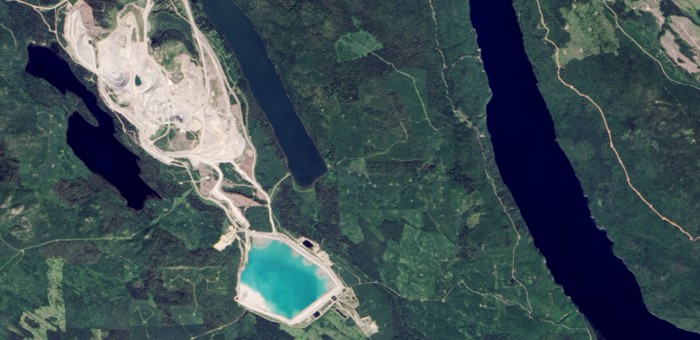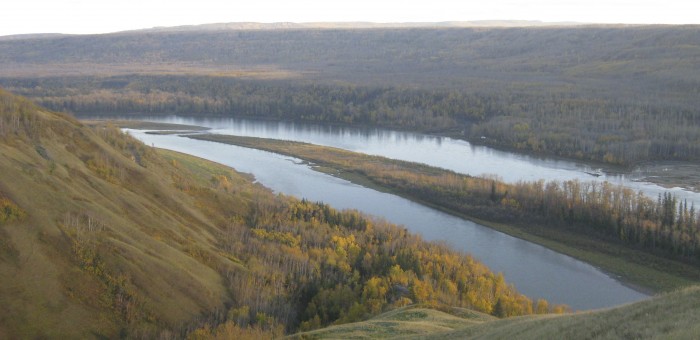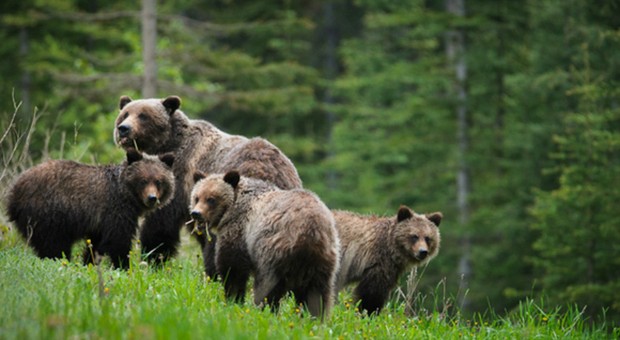Environment
Comments on MiningWatch Canada Mount Polley Lawsuit
Media Statement: October 18, 2016
Weaver Comments on MiningWatch Canada Mount Polley Lawsuit
For immediate release
Victoria B.C. – “The Mount Polley tailings pond breach shattered public confidence in government and industry’s ability to adequately protect the natural environment during mining operations, and for a good reason,” said Andrew Weaver, Leader of the B.C. Green Party and MLA for Oak Bay Gordon Head, regarding the private prosecution filed by MiningWatch Canada against the B.C. government and the Mount Polley Mining Corporation for violations of the federal Fisheries Act in connection with the 2014 tailings pond breach.
“B.C. had the largest mine waste disaster in Canadian history and yet no charges have been laid. This process cannot be taken lightly by government.The legacy of this incident has tarnished the international reputation of British Columbia’s important mining industry.
“Shortly after the tailings pond breach occurred in August 2014, I visited the Mount Polley mine site and was able to witness the local environmental devastation first hand. It was a sight to behold.
“I have recently spoken to residents who live on Quesnel Lake and know, two years later, that water quality is still a pressing issue. Every winter the lake overturns as the surface waters cool and the residual tailings waste rises to the surface.
“British Columbians deserve a government that will ensure their interests and the environment are protected.
“The B.C. Liberals have upset the balance between protecting the environment and protecting industry. I am grateful there are groups like MiningWatch Canada working to advance a safer equilibrium.”
– 30 –
Media Contact:
Mat Wright
Press Secretary – Andrew Weaver MLA
1 250 216 3382
mat.wright@leg.bc.ca
National Carbon Price a Welcome start
Media Statement: October 3, 2016
National Carbon Price a Welcome start: Andrew Weaver MLA
For immediate release
Victoria B.C. and Ottawa, Ontario – The announcement of a national price on carbon is a welcome start says Andrew Weaver, MLA for Oak Bay-Gordon Head and Leader of the B.C. Green Party.
The federal government announced today a carbon pricing scheme starting at $10 per tonne beginning in 2018, rising by $10 annually to $50 per tonne in 2022. Provinces and territories can choose a direct carbon tax, or a cap-and-trade model as long as greenhouse gas reduction targets are met.
“The national carbon price is an encouraging start to have all of Canada on a program to meet the commitments we signed under the Paris agreement.” says Andrew Weaver, “This plan also ensures any revenue collected remains in the provinces and territories allowing each jurisdiction flexibility on investments or tax relief.”
“Beyond a national carbon price what we need is federal investment to encourage all regions of Canada to move from a carbon intensive to a carbon neutral economy. That can, and should, involve many sectors like energy, transportation and construction. The opportunity now is to demonstrate national and international leadership from all levels of government. As leader of the B.C. Green Party my commitment is to ensure British Columbia is at the forefront of the transition to a 21st century economy.
“While this is a big step forward for Canada, the reality is that $10 per tonne is not enough to change behaviour. British Columbia should develop its own aggressive timeline for increases to its carbon tax. The effectiveness of our tax has been greatly reduced by not increasing it, as both Climate Leadership Teams recommended. British Columbia needs to make the pricing of carbon a centerpiece of our approach to economic development in order to properly and adequately address climate change.”
Andrew Weaver was on Parliament Hill in Ottawa, Ontario for the announcement today.
Media Contact:
Mat Wright
Press Secretary – Andrew Weaver MLA
1 250 216 3382
mat.wright@leg.bc.ca
The ongoing saga of derelict vessels along our coastline
T oday my office sent another letter to the Honourable Steve Thomson, Minister of Forests, Lands and Natural Resource Operations regarding yet another derelict vessel that has washed up on the beach at Gyro Park in Cadboro Bay.
oday my office sent another letter to the Honourable Steve Thomson, Minister of Forests, Lands and Natural Resource Operations regarding yet another derelict vessel that has washed up on the beach at Gyro Park in Cadboro Bay.
Recall that earlier this year I sent a letter to the Minister concerning a number of vessels that washed up after a winter storm. His response was not very reassuring. It suggested that both the province and federal government are mired in jurisdictional squabbles. As I noted earlier, what is desperately needed is a “one stop shopping” phone number and a timely remediation process for derelict vessels that end up on our British Columbia beaches.
Below I reproduce the the letter that I sent. I am hoping we get a timely response to this urgent matter.
Letter to Minister Thomson
September 22, 2016
Via Email to: FLNR.Minister@gov.bc.ca
Honourable Steve Thomson
Minister of Forests, Lands and Natural Resource Operations
Room 248, Parliament Buildings
Victoria, BC V8V 1X4
Dear Minister Thomson:
Re: Derelict wreck on Cadboro Bay foreshore (27 foot sailboat “Odin”)
Once again, I am writing with respect to the ongoing problem of derelict wrecks on the Provincial Crown foreshore of Cadboro Bay at Gyro Beach in Saanich. My office is hearing from many concerned residents and the Cadboro Bay Residents Association (“CBRA”) about the danger these wrecks pose to the public.
The latest occurrence is the 27 foot sailboat “Odin” (serial number 6E4422) which is resting on its side in an area of the beach which is heavily used by people of all ages. I have attached photos that provide evidence of how hazardous this vessel is to the public. In fact, only moments before these photos were taken, two small children were playing near (and attempting to climb on) the boat before the adults with them whisked them away from the danger.
In previous correspondence to me on February 5, 2016, you have indicated that dealing with problem vessels on Crown foreshore is complex and can involve multiple levels of government and that the BC government works collaboratively to find solutions. In the case of the “Odin”, I am writing to ask the Provincial Government to take necessary steps to deal with this matter as soon as possible.
Would you kindly respond at your earliest convenience to advise me on the status of the removal of this vessel, which poses a danger to the public every day it remains there.
I look forward to your reply.
Best wishes
Andrew Weaver, MLA
Oak Bay-Gordon Head
Not too late to change course on Site C dam
Since becoming an MLA I have visited the proposed location of the Site C dam on the Peace River twice. Most recently, on Aug. 23, I travelled a section of the river with a group of concerned community members. It’s hard to fathom the scale of planned development unless you see it in person, just as it’s hard to grasp the human and cultural cost of this project until you listen to the people caught in the middle of it.
Dam construction would flood more than 5,000 hectares of land – drowning homes, traditional lands, scores of culturally important sites, and 15,985 acres of agricultural land.
Local and indigenous people in the area are being systematically stripped of their livelihood and culture by one arm of government, while receiving apologies for past injustices and promises of reconciliation from another.
Compounding the environmental, historical, cultural and agricultural damages is a reckless disregard of energy economics.
Since 2005, domestic demand for electricity in B.C. has been essentially flat, but over the next 20 years BC Hydro forecasts our energy needs will increase by about 40 per cent as a consequence of both population and economic growth. They are selling Site C as the solution to this growing electricity demand, but their argument doesn’t hold water.
Upon completion, the dam would produce 1,100 MW (megawatts, i.e. millions of Watts) of power capacity and up to 5,100 GWh (gigawatt hours, i.e. billions of watt hours) of electricity each year.
Currently only about 1.5 per cent of B.C.’s electricity production is supplied by wind energy (compared to roughly 20 per cent in P.E.I.). With our mountainous terrain and coastal boundary, the potential for both onshore and offshore wind power production is enormous. The Canadian Wind Energy Association and the BC Hydro Integrated Resource Plan 2013 indicate that 5,100 GWh of wind-generated electricity could be produced in B.C. for about the same price as the electricity to be produced by the Site C dam.
A report by the Canadian Geothermal Energy Association noted B.C. also has substantial untapped potential for firm, on demand, geothermal power which could be developed where power is needed.
While costs associated with Site C will be borne by provincial taxpayers (a price tag that will eventually be much more than BC Hydro’s estimate of roughly $9 billion), solar, wind and geothermal project risks are covered by industry. Alternative sources coupled with existing dams could provide enough energy to meet the needs of British Columbians, with the potential to scale up as needed. They would also provide better economic opportunities to local communities and First Nations across the province, with lower impacts on traditional territories.
Instead of a diversified approach to renewable energy, the B.C. government is pushing Site C because they want to offer LNG proponents access to firm power. As I have been explaining for years, however, there will be no B.C. LNG industry in the foreseeable future because of a global glut in natural gas and plummeting prices for imported LNG in Asia. As the government desperately doubles down on LNG, renewable projects are moving elsewhere. Just this year they let a $750 million US investment to build wind capacity on Vancouver Island slip away, despite buy-in from five First Nations, TimberWest, EDP Renewables and the Canadian Wind Energy Association.
I wanted to see how much has been done when I visited Site C this summer. Nothing has passed a point of no return. Proceeding with Site C is actively driving clean energy investment out of the province, but it is not too late to correct our province’s power trajectory.
Applauding Grizzly Bear Foundation inquiry
Media Statement: September 8th, 2016
Weaver applauds Grizzly Bear Foundation inquiry
For Immediate Release
Victoria B.C. – “I welcome the Grizzly Bear Foundation’s inquiry into the status and future of grizzly bears in British Columbia and am supportive of the critical lens through which they are looking at this complex issue,” says Andrew Weaver, the MLA for Oak Bay – Gordon Head and Leader of the B.C. Green Party.
“Expanding our focus beyond trophy hunting is essential. While it is certainly an important factor, both morally and symbolically, and one I do not support, talking about trophy hunting alone is not enough. If we fail to also address poaching and threats to grizzly habitat and food supplies — especially with climate change further compromising essential salmon and huckleberry stocks — we will fail to protect grizzly bears in the long term.
“I am thrilled the Grizzly Bear Foundation shares this view and is so dedicated to the long term survival of grizzly bears in British Columbia, as well as the respectful inclusion of all stakeholders.
“The protection of wildlife and biodiversity for future generation is an issue that is of great importance to me. My research staff and I have worked on this file since I was first elected; we will continue to do so into the upcoming election. Combined with the Auditor General’s report, this new inquiry will lead to positive changes in how we manage and respect grizzlies and other wildlife in B.C.
“I look forward to attending the public hearing in Victoria this October.”
Media Contact:
Mat Wright – Press Secretary, Andrew Weaver MLA
mat.wright@leg.bc.ca
1 250 216 3382








